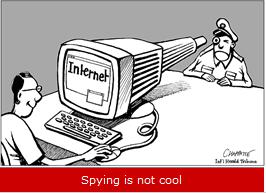Former MP calls for a massive public campaign to end Albanese's plans for Digital ID

online is a Trojan horse for the
surveillance of every Australian
using the Internet

online is a Trojan horse for the
surveillance of every Australian
using the Internet
 The Victorian Government's authoritarian Activity Centres program, heralded, by some, as a means to deliver "more than 300,000 additional homes by 2051," is presented as a progressive response to Melbourne's self-induced housing crisis. However, the reality seems closer to slum construction, ultimately compromising residents' quality of life and democratic rights.
The Victorian Government's authoritarian Activity Centres program, heralded, by some, as a means to deliver "more than 300,000 additional homes by 2051," is presented as a progressive response to Melbourne's self-induced housing crisis. However, the reality seems closer to slum construction, ultimately compromising residents' quality of life and democratic rights.
 "Algorithms seem to me, at this point, the closest thing we have to demons." (Douglas Rushkoff) Douglas Rushkoff is a highly stimulating speaker with a comprehensive but original view of the problem of internet tyranny. He approaches it as a problem of monopolies and corporations in the context of economic growthism, which he argues is unsustainable and ultimately destroys companies because it costs them too much. He recommends long-term business models, which aim to support their participants. He notes that family businesses tend to do better and last longer because they have this model, rather than the growth model. In his lecture he is able to travel across several disciplines, back and forth, and to tie economics to society and soil degradation. He makes concrete and inventive recommendations. This is less about internet censorship than about the destruction of local markets and the sidelining of entire populations. Rushkoff is the author of multiple books, but in this video, he talks about a 2016 publication called, Throwing rocks at the google bus: How Growth Became the Enemy of Prosperity.
"Algorithms seem to me, at this point, the closest thing we have to demons." (Douglas Rushkoff) Douglas Rushkoff is a highly stimulating speaker with a comprehensive but original view of the problem of internet tyranny. He approaches it as a problem of monopolies and corporations in the context of economic growthism, which he argues is unsustainable and ultimately destroys companies because it costs them too much. He recommends long-term business models, which aim to support their participants. He notes that family businesses tend to do better and last longer because they have this model, rather than the growth model. In his lecture he is able to travel across several disciplines, back and forth, and to tie economics to society and soil degradation. He makes concrete and inventive recommendations. This is less about internet censorship than about the destruction of local markets and the sidelining of entire populations. Rushkoff is the author of multiple books, but in this video, he talks about a 2016 publication called, Throwing rocks at the google bus: How Growth Became the Enemy of Prosperity.
 Russia is preparing itself to be disconnected from the World Wide Web. The Lower House of Parliament passed in the first reading a law ensuring the security of the Russian part of the internet. The bill envisions the ‘Runet’ – the Russian segment of the internet – being able to operate independently from the rest of the world in case of global malfunctions or deliberate internet disconnection. The measures to ensure internet stability include the creation of a national DNS system that stores all of the domain names and corresponding IP numbers. (Article first published at RT on 13 February 2019.)
Russia is preparing itself to be disconnected from the World Wide Web. The Lower House of Parliament passed in the first reading a law ensuring the security of the Russian part of the internet. The bill envisions the ‘Runet’ – the Russian segment of the internet – being able to operate independently from the rest of the world in case of global malfunctions or deliberate internet disconnection. The measures to ensure internet stability include the creation of a national DNS system that stores all of the domain names and corresponding IP numbers. (Article first published at RT on 13 February 2019.)
The bill envisions the ‘Runet’ – the Russian segment of the internet – being able to operate independently from the rest of the world in case of global malfunctions or deliberate internet disconnection. The measures to ensure internet stability include the creation of a national DNS system that stores all of the domain names and corresponding IP numbers.
The new legislation was drafted in response to the new US cyber strategy that accuses Russia, along with China, Iran, and North Korea, of using cyber tools to “undermine” its economy and democracy. It also threatens dire consequences for anyone conducting cyber activity against the US.
The autonomous system would ensure that Russia doesn’t face a total internet shutdown if relations with the West completely collapse and the US goes as far as cutting off Russian IP addresses from the World Wide Web.
Back in 2012, then-US President Barack Obama signed an executive order allowing him to take control of all communications on American soil, including those crucial for the normal operation of the internet.
The US National Security Agency actually caused a three-day internet blackout in Syria in November 2012, whistleblower Edward Snowden told Wired magazine. NSA hackers accidently ‘bricked’ one of the core routers while trying to install spyware on it.
 (Article first published on RT at on 3 July 2018.) A senior Russian diplomat has told reporters that the country has everything to launch its own independent internet, but added that this would be done only if things go completely sour due to the efforts of “Western partners”.
(Article first published on RT at on 3 July 2018.) A senior Russian diplomat has told reporters that the country has everything to launch its own independent internet, but added that this would be done only if things go completely sour due to the efforts of “Western partners”.
“There are technical, financial, intellectual and all the rest necessary resources for this, but I don’t think that anyone really wants this,” the head of the Russian Foreign Ministry’s Department for New Challenges and Threats, Ilya Rogachev, said in comments with TASS.
“The primary thing that could lead to such outcome is the policy of our Western partners, in particular the imposing of double standards. If they continue to impose double standards then we can start talking about creating a parallel internet in Russia, as a sort of a worst-case scenario,” the diplomat added.
Russia to launch ‘independent internet’ for BRICS nations - report Russia to launch ‘independent internet’ for BRICS nations - report
In November 2017 the top Russian advisory body – the Security Council - asked the country’s government to develop an independent internet infrastructure for BRICS bloc (Brazil, Russia, India, China and South Africa), which would continue to work in the event of global internet malfunctions. According to Russian mass media, President Vladimir Putin personally set a deadline of August 1, 2018 for the completion of the task.
One of the council members described the main reason behind the project as “the increased capabilities of Western nations to conduct offensive operations in the informational space as well as the increased readiness to exercise these capabilities pose a serious threat to Russia’s security.”
Majority of Russians support ‘own internet’ for BRICS nations Majority of Russians support ‘own internet’ for BRICS nations
In March, the then-presidential aide on the internet issues, German Klimenko, told the press that Russia was ready to run its own isolated internet in case the Western sanctions lead to isolating the country from the world wide web. However, the official noted that the shutdown would not be painless.
The Russian segment of the internet, intended especially for civil servants, is already working, Klimenko noted. He also reminded people that Russia, like China and the United States, has its own search engines, social networks and advertising.
“The internet is being regulated in all countries and Russia is no exception. However, extreme options like North Korean or Cuba are not our choice,” he said.
Just as any new technology claims to offer the most advanced development; that their definition of progress will cure society’s ills or make life easier by eliminating the drudgery of antiquated appliances, the Wifi Alliance was organized as a worldwide wireless network to connect "everyone and everything, everywhere" as it promised "improvements to nearly every aspect of daily life."
The Alliance, which makes no pretense of potential health or environmental concerns, further proclaimed (and they may be correct) that there are "more wifi devices than people on earth". It is that inescapable exposure to ubiquitous wireless technologies wherein lies the problem.
Read more at: The Wifi Alliance, Coming Soon to Your Neighborhood: 5G Wireless (6/7/18) by Renee Parsons | Global Research

Republished from http://www.colorofchange.org/opennet/
Dear friends,
The Internet has made amazing things possible, like freeing the Jena 6 and electing President Obama. None of it could have happened without an "open" Internet: one where Internet service providers are not allowed to interfere with what is seen and by whom.
Now, Comcast, AT&T, and Verizon -- the most powerful broadband providers -- are trying to fundamentally change the way the Internet works. They're seeking to make even bigger profits by acting as gatekeepers over what we see and do online. If they succeed, the Internet would be more like radio and television: a few major corporations would control which voices are heard most easily, and it would be much harder for grassroots groups, individuals, and small businesses to compete with large corporations and well-funded special interests.
The Federal Communications Commission (FCC) wants to do the right thing and keep the Internet open, but the big providers have been attacking their efforts, with help from Black leaders who have financial ties to the industry. And a recent court ruling just made the FCC's job even tougher.[1] If the FCC is to preserve an open Internet, they will have to boldly assert their authority and press even harder. It's why they need to hear directly from everyday people about the importance of an open Internet, now.
Will you join me in sending a message to the Federal Communications Commission supporting their effort to preserve an open Internet? It takes only a moment:
http://www.colorofchange.org/opennet/?id=2432-1205225
The FCC is working to create rules that would protect "net neutrality," the principle that protects an open and free Internet and which has guided the Internet's operation since it began. It guarantees that information you put online is treated the same as anyone else's information in terms of its basic ability to travel across the Internet. Your own personal website or blog can compete on equal footing with the biggest companies. It's the reason the Internet is so diverse -- and so powerful. Anyone with a good idea can find their audience online, whether or not there's money to promote the idea or money to be made from it.
AT&T, Comcast, and Verizon are spending millions of dollars lobbying to create a new system where they can charge large fees to speed up some data while leaving those who can't afford to pay in the slow lane.[2] Such a system could end the Internet as we know it -- giving wealthier voices on the Internet a much bigger megaphone than poorer voices, and stunting the Internet's amazing equalizing potential.
Buying the support of Black organizations?
President Obama strongly supports net neutrality, and so do most members of the FCC. With so much at stake for Black communities, you would expect Black leaders and civic organizations to line up in support of an open Internet.
But instead, a group of Black civic organizations is challenging the adoption of net neutrality rules. Some of the groups are nothing more than front groups for the phone and cable companies. Others, however, are major civil rights groups -- and all of them have significant financial ties to the nation's biggest Internet service providers. For example, AT&T donated half a million dollars last year to the NAACP, and led a drive to raise $5 million more[3], and boasts of donating nearly $3 million over the last ten years to a number of Black-led organizations.[4] Verizon, meanwhile, recently gave The National Urban League and the National Council of La Raza a $2.2 million grant.[5] Comcast is one of the National Urban League's "national partners" (Comcast Executive Vice President David Cohen now sits on the NUL's Board of Trustees)[6], and the NUL's 2008 annual report notes that Comcast donated over $1 million that year.[7] Many of these groups have now filed letters with the FCC opposing or cautioning against net neutrality,[8,9,10,11] and the Internet service providers are using the groups' support to promote their agenda in Washington.[12,13]
The main argument put forth by these groups is that net neutrality rules would widen the digital divide. They say that unless we allow Internet service providers to make bigger profits by acting as gatekeepers online, they won't expand Internet access in under-served communities. It's a bogus, trickle-down argument that has been thoroughly debunked.[14, 15] Expanding access to high speed Internet is an extremely important goal. But Internet service providers are already making huge profits,[16, 17] and if they believed that investing in low-income communities made good business sense, they would already be doing it. Allowing them to make more money by acting as toll-takers on the Internet won't change that. When these civil rights groups have been asked to back up their arguments, none have been able to do so without appealing to discredited, industry-funded studies.[18] Nevertheless, the FCC has taken notice of what these civil rights groups are saying about net neutrality, and is wary of going against them for fear of being perceived as insensitive to minority concerns.[19]
Now it's up to you
The FCC wants to do the right thing and implement net neutrality rules. FCC commissioners know, as we do, that the anti-net neutrality arguments coming from civil rights groups are bogus. But they don't want to appear to be on the wrong side of Black interests.[20]
We need to demonstrate that there's support among Black folks and everyone else for protecting an open Internet. Please join me in telling the FCC that we support net neutrality.
You can add your voice here:
http://www.colorofchange.org/opennet/?id=2432-1205225
Thanks.
1. http://bit.ly/drWbQ3
2. http://www.savetheinternet.com/threats-open-internet
3. http://bit.ly/akyXZS
4. http://bit.ly/aGOz89
5. http://www.nclr.org/content/news/detail/54262/
6. http://bit.ly/93zDr6
7. http://bit.ly/dnqyq4
8. http://fjallfoss.fcc.gov/ecfs/document/view?id=7020141807
9. http://mmtconline.org/lp-pdf/NatlOrgs%20NN%20Comments%20011410.pdf
10. http://colorofchange.org/opennet/jan-letter.pdf
11. http://colorofchange.org/opennet/naacp-letters.pdf
12. http://colorofchange.org/opennet/usindustry-letter.pdf
13. http://bit.ly/d8GdOu
14. http://www.freepress.net/files/nn_fact_v_fiction_final.pdf
15. http://bit.ly/ay0dx7
16. http://bit.ly/9JQSDk
17. http://nyti.ms/cZaGq8
18. http://bit.ly/cpPA51
19. http://huff.to/awKtvk
20. http://huff.to/awKtvk
 So Australia's Rudd Government proclaims that some internet content is "simply not suitable in a civilised society".
So Australia's Rudd Government proclaims that some internet content is "simply not suitable in a civilised society".
Mmmm, smells of public communications consultant speak!
This latest Ruddism could possibly become broadest claim of the 21st Century thus far. Could thy Rudd-speak imply anything beyond banning child porn? Could it in fact imply that any website critical of Rudd and Ruddism be instantly labelled 'not Rudd suitable' and so excommunicated by his holiness?
Check out today's ABC news 'Greenlight for internet filter plans' 15th December 2009.
So when can I but my brown shirt and leather sash, Herr Rudd?
Das Goebbels speak is said to save our innocent children from harmful overseas sites which contain criminal content, including child sex abuse and sexual violence.
Sounds noble enough, but Rudd's censorship powers will be in their detail.
Is the Ruddnet being cast wide across a realm he fears he cannot otherwise control -the Internet and Blogosphere? Our Rudd is known for his clandestine flights to Afghanistan, but has he in the wee hours taken off to Fiji to get direct dictator advice on censorship from from neighbouring Josaia Voreqe Bainimarama or even Robert Mugabe?
Father Rudd is unprecedentedly stepping into the role of parental responsibility if people accept the spin that it is only about protecting children. To claim "the Government believes that parents want assistance to reduce the risk of children being exposed to such material" sounds no more than moralistic spin. But it could be read that parents have been found irresponsible and its time government took over parental responsibility!
Is Rudd capitialising on spin of noble child protection while extending Federal censorship to anyone online daring to criticise Rudd, Rudd Policy, Ruddnomics and any Ruddism? Are we about to witness unprecented government censorship on any opposition akin to what Howard and Bush did.
See also:"Greenlight for internet filter plans" of 15 Dec 09, Stop Internet Censorship! of 4 Dec 09.
What you can do: Attend an Anti-Internet Censorship meeting (see facebook). When: Monday 21 Dec 09, 7:30 PM; Where: Brisbane Square Library – Community Meeting Room
The original article, by Tristan Ewins was originally published on leftfocus.blogspot.com on 7 Apr 09.)
Rudd Labor has announced - on April 7th - a plan to finance and construct a massive 'fibre to the home' broadband network -- supplying service to 90% of Australian homes. This comprises a remarkable sea change in public policy.
According the Stephen Conroy, the project will: "directly support up to 25,000 local jobs every year, on average, over [its] 8 year life" www.minister.dbcde.gov.au/media/media_releases/2009/022
As reported on the SBS news website, the new company, formed by the government, "will spend more than $43 billion delivering high speed broadband to 90 per cent of homes and businesses [starting] from early 2010." (www.sbs.com.au/news/article/1014650/Mixed-reaction-to-broadband-announcement)
Meanwhile, the remaining households would be provided with Wireless and Satellite technology.
The plan in its entirety, however, would "set back the deliver of high-speed broadband to the entire country until about 2018." (www.news.com.au/heraldsun/story/0,21985,25301678-661,00.html)
Presumably the plan is for rollout to begin soon -- perhaps from 2010 -- but to take many years for completion. Here, time is of the essence. Australia could well become a world leader in new communications, information, and entertainment industries. Close scrutiny needs to be applied, therefore, in ensuring the swift deployment of the promised infrastructure.
Currently, the government plans to take a holding of at least 51 per cent in the company, including the issuing of bonds to the public 'Infrastructure Bonds'. (www.news.com.au/heraldsun/story/0,21985,25301678-661,00.html)
The 'slack' is supposed to be 'taken up' by the private sector -- but with financial crisis -- and shortage of liquidity, that may not be viable for some time.
For many years, now, Australian governments have eschewed the kind of nation-building1 infrastructure investments which are so vital to our country's future.
Now, however, Kevin Rudd has placed this announcement in the same league as the iconic 'Snowy Mountain hydro scheme'.
Again, the author emphasises: The investments we make now might provide for Australian information, communications and entertainment for decades into the future. So it is essential for the government to 'get it right'.
At the 'Left Focus' blog, this writer had argued in February for a public 'fibre fibre to the home' network. Importantly, such a substantial investment stands to deliver productivity gains, and drive real improvements to material living standards. (leftfocus.blogspot.com/2009/02/national-broadband-network-make-it_06.html)
New technology in this sector looks set to deliver a revolution in communications, information and entertainment.
As the author wrote in February, new technology could involve: "the fusing of digital television with Internet services and content."
While the new paradigm could be "interactive, participatory, open, and consumer driven." , "consumers [might] be able to shift seamlessly from 'pay for content' services, to free-to-air content."
Such content could be "sponsored through pinpoint advertising - adapted to consumer profiles, or where such information is unavailable, adapted to suit the content." ( leftfocus.blogspot.com/2009/02/national-broadband-network-make-it_06.html)
Another possible use for the new technology would be "video-telephony/video-conferencing." As John Quiggin has written at his blog:
"It can be done, just, with existing technology, but the possibilities would be radically transformed by the advent of near-universal fast broadband." (http://johnquiggin.com/">http://johnquiggin.com/">http://johnquiggin.com/)
Many years past such investments would be considered a matter of 'nation-building', delivered as public monopoly. Today, however, Rudd Labor felt obliged to qualify its announcement by suggesting the new company would be privatised at some later date.
There are many reasons why the government needs to reconsider.
Firstly, given the centrality of new information and communications technology to everyday life, there is the spectre of 'information rich' and 'information poor' households'.
A company or authority -- remaining in public ownership -- could cross-subsidise provision of service for struggling households -- including those on low incomes and welfare.
However - even a part-private company would be divided in its loyalty to the public, and to shareholders. Assuming eventual full private ownership, there would be no-scope for cross subsidies. Furthermore -- profit margins would see more expensive service than if a public authority had run the network on a not-for--profit basis.
A 'Communications Levy' on business, the wealthy and high income earners (say 1%-2%) meanwhile, could cover the gains made by business as a consequence of emerging new markets, and technology-driven productivity. This could provide for the cost of debt servicing into the future.
Furthermore, should the new body -- under private ownership - hold a 90% stake in the national broadband market -- surely it would be easier -- and wiser -- to avoid the potential abuse this could involve. By this I again clearly infer a case for full public ownership.
And surely the Wireless network should be provided publicly too. Again -- an effective private monopoly here could result in the fleecing of rural customers who have no other choice.
Indeed: many customers will want 'the best of both worlds' -- and could benefit from 'package deals' that enable a natural public monopoly to take advantage of its economies of scale.
Finally -- a fully-public authority would be more compatible with 'national security concerns'.
Infrastructure as sensitive as a state-of-the-art communications network needs to be run by an authority committed to the privacy of Australian citizens. And there needs to be information security for Australian intelligence and defence interests.
In condemning the kind of 'extreme capitalism' that saw the collapse of finance markets worldwide, Kevin Rudd suggested a fundamental shift in outlook -- away from the neo-liberal paradigm.
Now, though, we are again being told to accept a privatisation agenda that few ordinary people really want -- and which doesn't really even make sense.
Surely governments of the Centre-Left today can be confident enough to reconsider the value of a 'democratic mixed economy'.
Natural public monopolies, here, ought be considered 'part of the picture' -- especially when they so directly provide for human need. Add to this the imperative of avoiding wasteful cost structure duplication on the one hand; or the dangers of monopoly on the other.
A public National Broadband Authority -- or government-owned company with a public service charter -- could provide for the real needs of Australian consumers and business.
As stated: such a body could provide cross-subsidies to those otherwise disadvantaged for lack of wealth. And it could provide cheap -- but high quality service -- being run on a not-for-profit basis.
And again: Debt-servicing costs could be provided for through a 'Communications Levy' upon high income earners and corporations.
John Quiggin has suggested the following scenario: presuming a "10 per cent return to cover capital costs and depreciation" the new company would need " revenue of around $4 billion a year, on top of operating costs, say $1 billion a year."
He continues:
" That would require 5 million households and small businesses to pay $1000 a year (about $80/month) each."
While Quiggin is unsure whether or not these conditions will be met, the author of this paper believes the possibilities will be broad.
Again: there is the possibility of "fusing of digital television with Internet services and content": A paradigm which is: "interactive, participatory, open, and consumer driven."
The Greens and other Senators on the cross-benches could have leverage here -- so focus upon these people is key. And as the next ALP National Conference approaches there will be many with whom the arguments made in this paper would find resonance.
The goal of a democratic mixed economy, here, should not be only the preserve of the ALP Left and Greens It should matter to all social democrats, and those who care about the public interest, and the rights of the poor.
If it's worth doing, it's worth doing the right way. Let's organise to make sure this time the government - and other core Parliamentary players - get it right.
Tristan Ewins
See also: "The case for re-nationalising Telstra" of 13 Jan 09 also by Tristan Ewins also published on Online Opinion, Forum discussions "The broadband revolution" and "Monday Message Board" on johnquiggin.com, "Other projects will pay for hare-brained scheme" by Kenneth Davidson in the Age of 9 Apr 09, citizensagainstsellingtelstra.com.
1. ↑ Editor's note: The term 'nation-building' is often also used by the growth lobby for building up population numbers. In this article it is used to describe building infrastructure on a national basis.
Recent comments